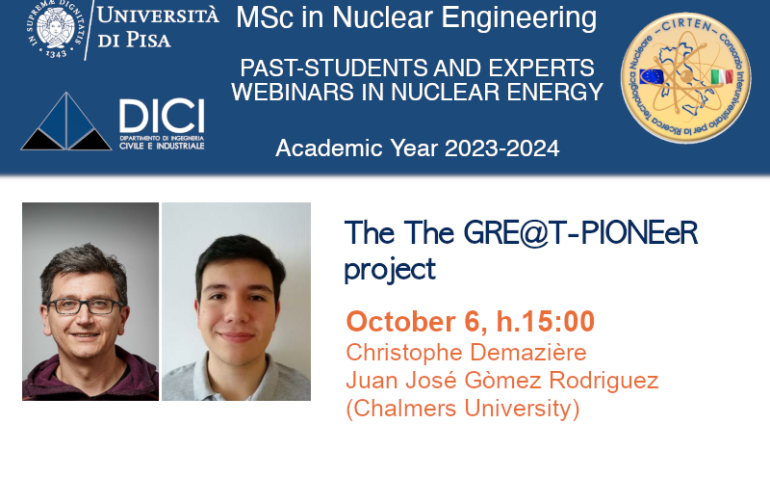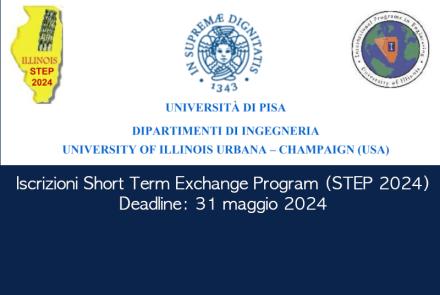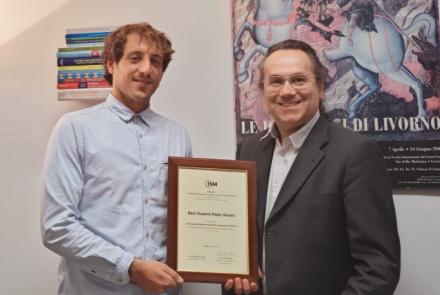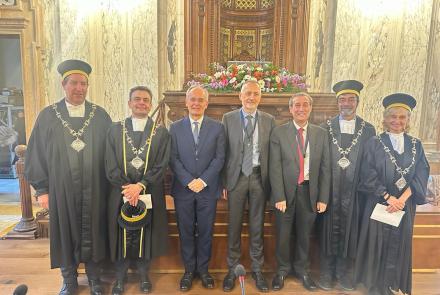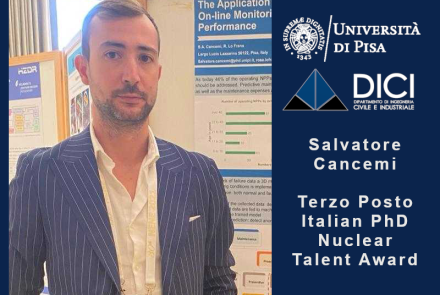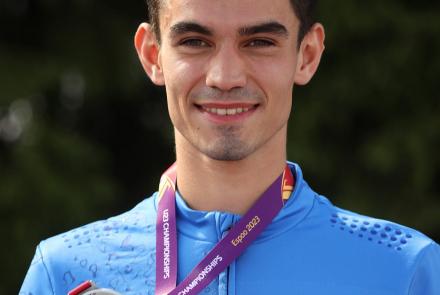Venerdì 6 ottobre, alle ore 15.00, Christophe Demazière e Juan José Gòmez Rodriguez (Chalmers University) terranno il seminario online dal titolo "The GRE@T-PIONEeR project".
L'incontro fa parte del ciclo 2023 "Past-students and Expert Webinars in Nuclear Energy", un programma di webinar sull'energia nucleare tenuti da ex-studenti unipi ed esperti internazionali.
Il ciclo è organizzato nell'ambito del progetto ENEN2plus, dell'European Nuclear Education Network.
Christophe Demazière earned his PhD in reactor physics in 2002 and is now full professor at Chalmers University of Technology, Gothenburg, Sweden. He is responsible for the research and teaching activities in computational nuclear reactor physics at Chalmers. The research group gathers a cross-disciplinary expertise in neutron transport, fluid dynamics, heat transfer, and numerical methods. The aim of the group is to develop beyond state-of-the-art techniques for modelling nuclear reactors, thus contributing to improved simulations tools and enhanced safety.
Prof. Demazière is lecturing in courses on the physics and modelling of nuclear reactors. He has authored a book on the “Modelling of Nuclear Reactor Multi-physics - From Local Balance Equations to Macroscopic Models in Neutronics and Thermal-Hydraulics”. For the past ten years, he has been developing and implementing innovative pedagogical methods (flipped classroom, active learning, hybrid teaching and online teaching) in all his teaching activities, with the purpose of improving student learning and the learning experience. For that purpose, the effects of the teaching reforms are systematically analyzed and evaluated. Since 2020, he is the acting coordinator of the Horizon 2020 GRE@T-PIONEeR project.
He is a member of the American Nuclear Society.
Juan José Gómez Rodríguez is currently completing his master's degree in nuclear engineering at the University of Pisa, Italy. He is currently engaged in research at the Technical University of Dresden, working on his master's thesis in the field of reactor physics, specifically focusing on the determination of integral cross section data for various materials using the pile oscillation method at the training reactor AKR-2. Prior to his master's studies, Juan completed his bachelor's degree at the National University of Colombia in Bogotá. During his undergraduate studies, he conducted research and authored two articles in the field of electromagnetic methods in geophysics, exploring their potential applications for earthquake forecasting. Furthermore, Juan gained experience by working for two years at the primary research center that owns the only nuclear research reactor in his home country, the Colombian Geological Survey. In the past year, he completed a six-month internship at the Vienna Center for Disarmament and Nonproliferation, during this time, he focused on topics related to nuclear safeguards for innovative and evolutionary reactor designs and the social perception of nuclear energy.
In his involvement with the EU-GRE@TPIONEeR> project, Juan has successfully completed four courses, including the onsite course of neutron transport at fuel cell and assembly levels, hands-on training in the TU Dresden reactor, and online courses on core modeling for core design and radiation protection in nuclear environment. He actively encourages his colleagues to partake in these extracurricular training opportunities due to the numerous benefits they offer and their potential to complement their future careers as scientists.

